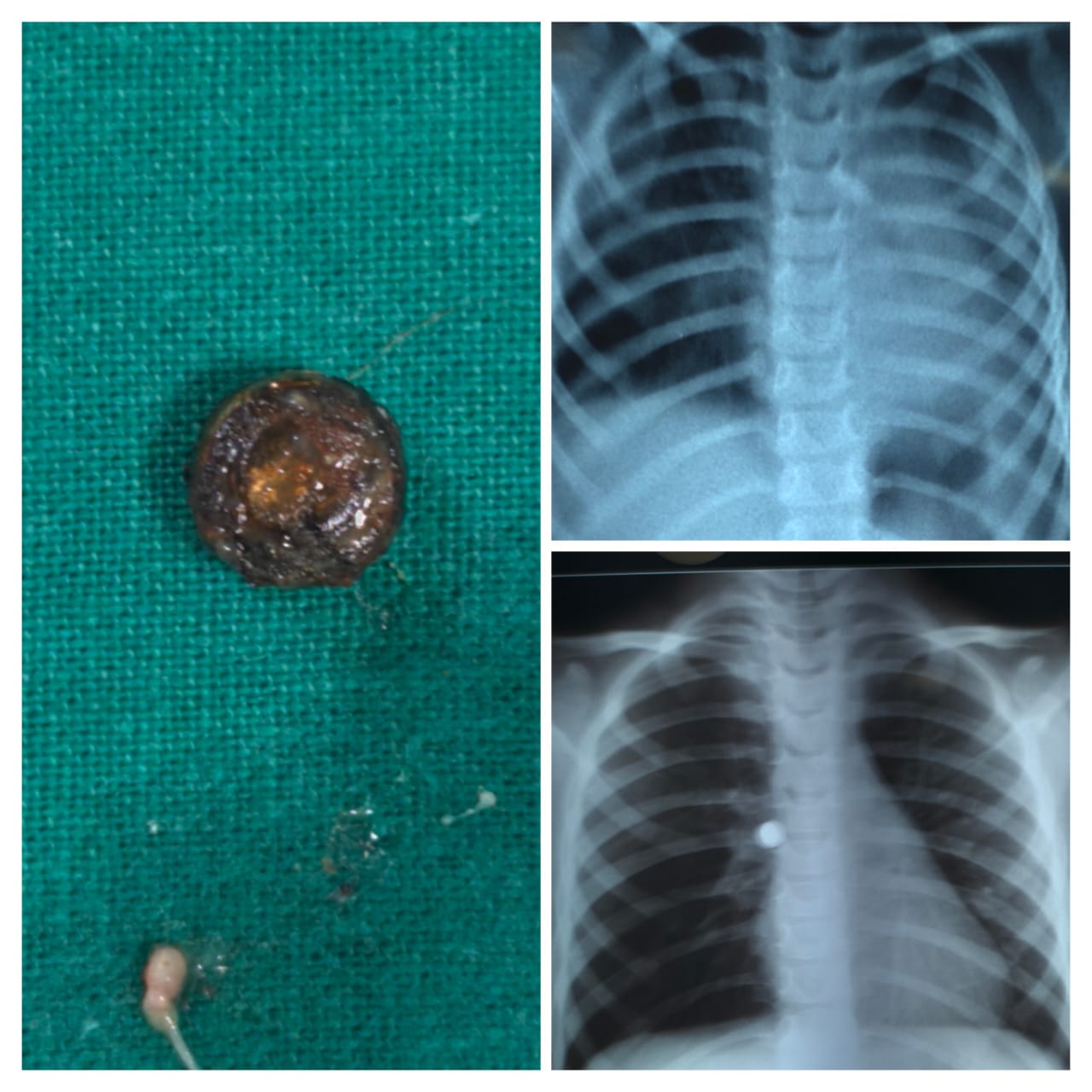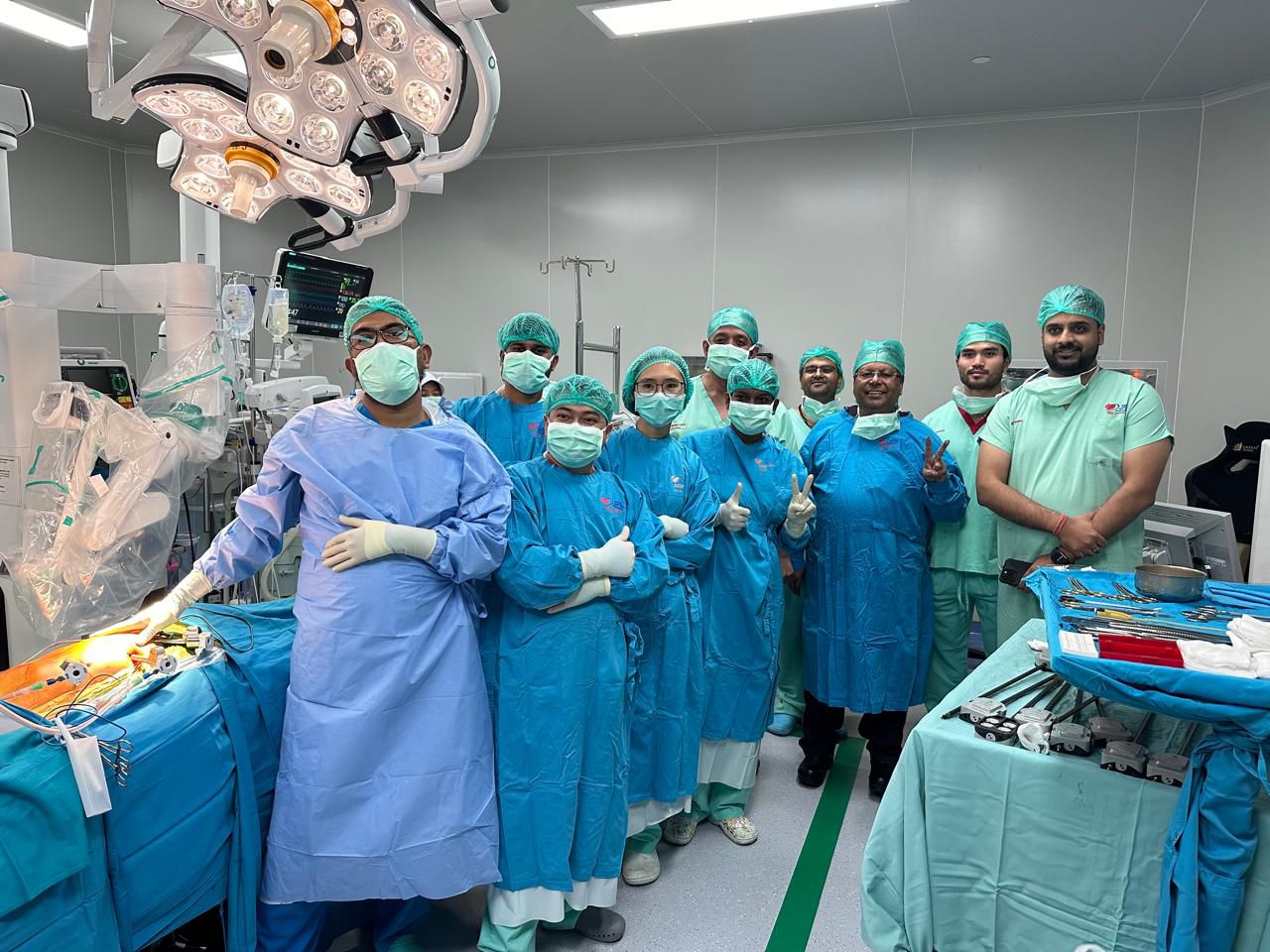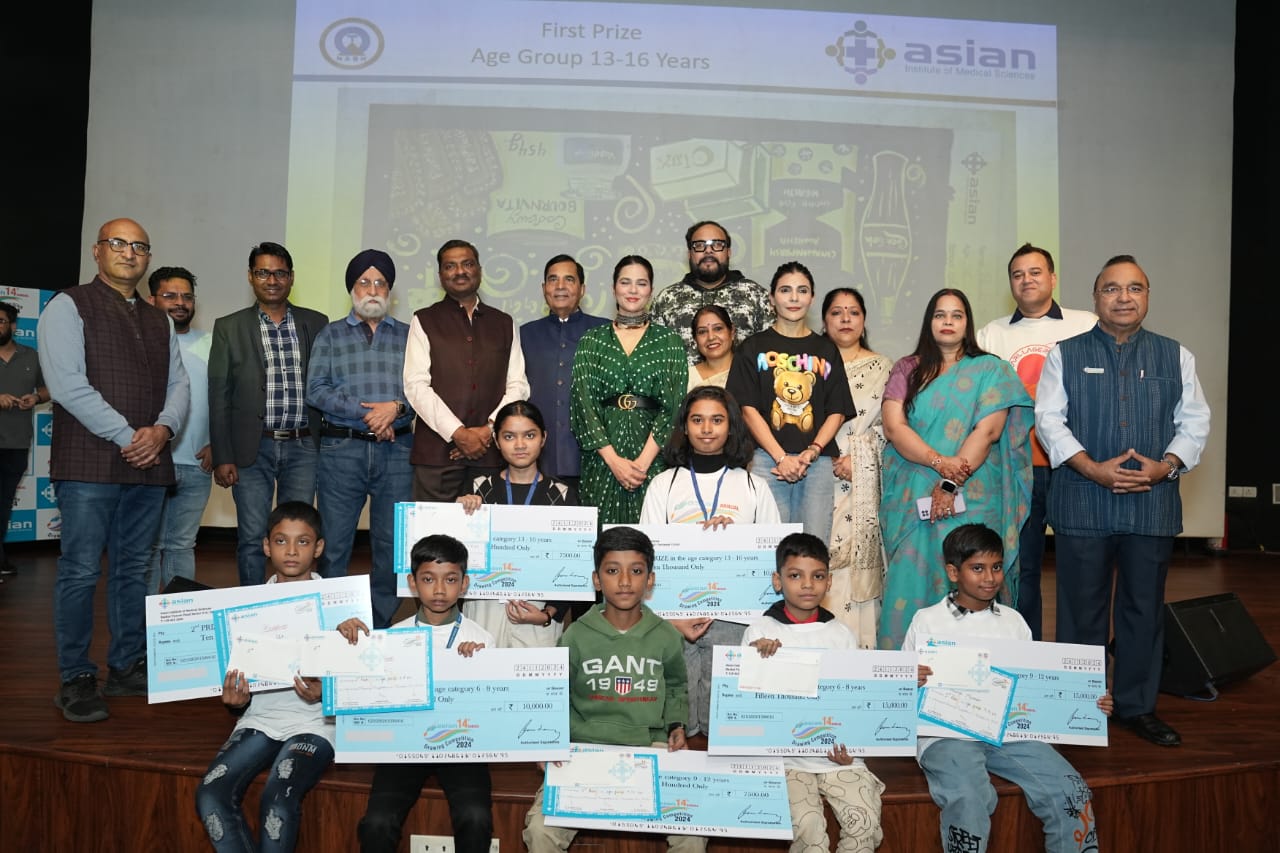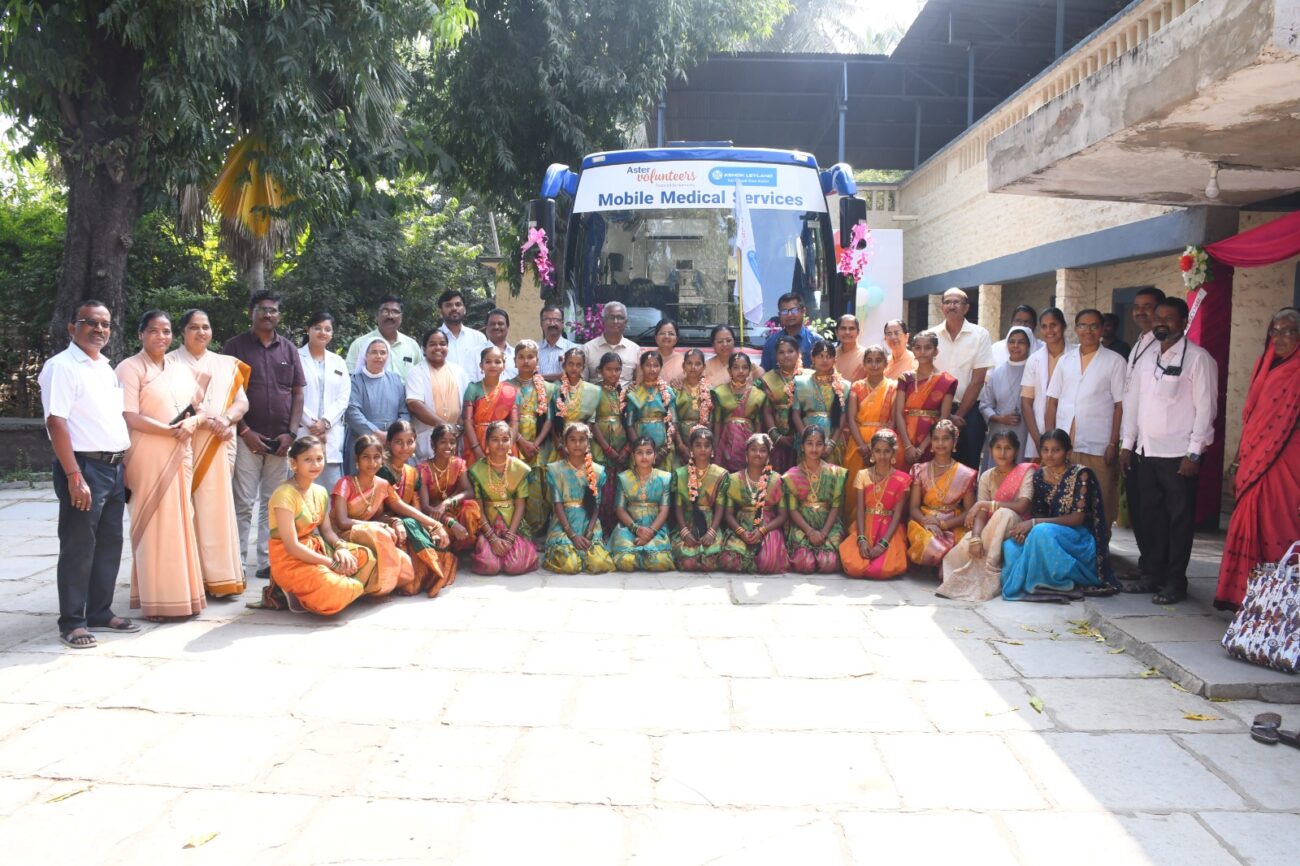Button Battery successfully remove from a four-year old’s Bronchus
Early intervention and expert care crucial in managing foreign body aspirations in children. A 4-year-old girl presented in the emergency department of Jupiter Hospital, Pune with a sudden bout of coughing after accidentally swallowing a button

Early intervention and expert care crucial in managing foreign body aspirations in children.
A 4-year-old girl presented in the emergency department of Jupiter Hospital, Pune with a sudden bout of coughing after accidentally swallowing a button battery while eating.
Her parents, concerned about her cough, initially took her to a pediatrician, who treated her with medicines and nebulization. Despite the treatment, her wheezing persisted. The distressed parents then went for a second opinion and consulted another doctor. Subsequent investigations revealed that something was lodged in her windpipe (bronchus).
Recognizing the potential complications, the child was brought to Jupiter Hospital for advanced management. Here, the child was thoroughly examined and an emergency bronchoscopy was performed by Dr. Abhijit Benare after explaining the risks and possible complications to the parents
Shedding light on the procedure, Dr. Benare explained that during the bronchoscopy, the foreign object, which was a button battery, was carefully removed. The patient’s recovery was smooth, and she was discharged on the third day after the procedure.
Dr. Tejas Hambir, Paediatrician & Intensivist, shared insights into the case, “foreign body aspiration is common in children, with the most frequent culprits being food items like peanuts and almonds. However, the ingestion of a button battery is rare and carries unique risks.”
Dr. Benare further added, “that button batteries can cause significant harm as they release alkaline substances that can erode the bronchial cartilage. This can lead to life-threatening complications such as mediastinitis (inflammation in the chest cavity) and fistula formation, which may require major surgery if not addressed in time.”
Senior anaesthetist, Dr. Snehal Shool highlighted the challenges in administering anaesthesia in such cases. Managing the procedure requires a high level of expertise due to the potential complications.
In this case, the timely removal of the button battery was crucial to the child’s recovery. Foreign body removal via bronchoscopy remains the best treatment approach to prevent severe complications.
The successful outcome of this case highlights the importance of early intervention and expert care in managing foreign body aspirations in children.






